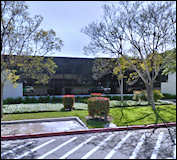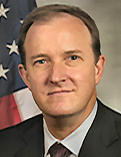
ABOVE: Online Micro HQ
Last week the Bureau of Industry and Security released Settlement Agreements it entered into with Massoud Habibion, Mohsen Motamedian, and Online Micro LLC in connection with computers exported to Iran through an intermediary in the UAE. Online Micro and Habibion agreed to suspended ten-year export denial orders with no fine. Motamedian agreed to a $50,000 fine with no denial order.
The charging papers for Mr. Habibion once again reveal the real reason for the so-called outreach visits by BIS personnel when it noted that Habibion “knew” that the exports required a license because
BIS Special Agents conducted an outreach visit to Habibion in January 2010, during which the Special Agents informed Habibion that unlicensed exports of computers to the UAE with knowledge that the ultimate destination of the items was Iran constituted a violation of the Regulations.
As I’ve said before, don’t permit BIS agents to conduct an “outreach” visit at your company without your lawyer being present because if something ever happens down the road they are going to say that they informed you it was illegal during an outreach visit. You also can politely decline outreach visits.
Of course, there’s more to this story than the BIS civil charges which were simply piled on top of criminal charges here. According to a DOJ press release, Messrs. Habibion and Motamedian pleaded guilty to criminal charges related to the export of the computers to Iran. One interesting detail sticks out in the press release. Apparently, the computers that were sent to Iran were Dell computers. When people in Iran started calling Dell on service issues, the company conducted an investigation which led back to Online Micro and its principals. Moral of this part of the story: if you’re going to sell stuff illegally to Iran, sell stuff that doesn’t break down.
But wait! There’s even more and it involves a nasty divorce, a wife seeking revenge and an iPhone. Some of the government’s evidence consisted of allegedly incriminating entries on Mr. Habibion’s iPhone. According to an unintentionally, but irresistably, amusing pleading filed by Mr. Habibion’s lawyers, the phone was grabbed from Habibion’s wife at a school function for their daughter. She told him that she had “thrown it down a canyon” so that rather than changing the password on the phone he just got a new one. Habibion’s wife then turned it over to ICE after it had been downloading Mr. Habibion’s emails while connected to WiFi. The defense also claimed that Habibion’s wife added false information that would incriminate him in the prosecution. For good measure they also claimed that the notes in the iPhone which allegedly revealed sexual philandering by Habibion with both males and females were forged by Habibion’s wife for benefit of the divorce proceedings. Second moral of this story: make sure you have a happy home life before shipping a boatload of computers to Iran.

 Posted by
Posted by  Category:
Category: 

 Well, who would have thought that a Google news search on “dual use exports” would turn up a
Well, who would have thought that a Google news search on “dual use exports” would turn up a  In a
In a  Federal Express has
Federal Express has 


